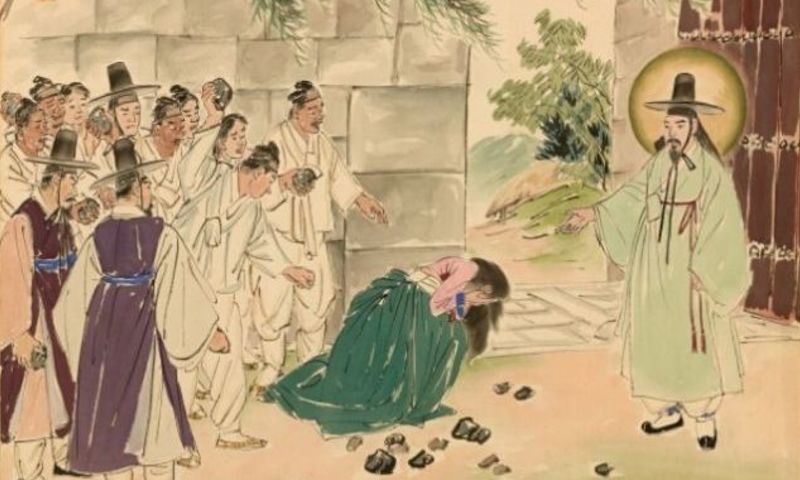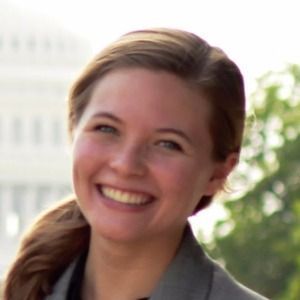As a way to continue the conversations in The Biola Hour, we've invited Sam Gassaway to blog her thoughts after each episode. This is a response to Episode 34 on Escaping North Korea, here. Feel free to interact with Sam's thoughts in the comments below or on Twitter (@sgkay47).
(photo courtesy of the “Sacred” ink paintings of Woonbo Kim Ki-chang)
The “hermit country.” The Kim regime. China’s pawn. Nuclear warfare. The Olympics. Mysterious. Hidden. Famine. Poor.
North Korea.
It is more than likely when you read “North Korea,” you do not think “Jerusalem.” They don’t mix. They’re too far removed from one other. They’re culturally inconsistent. It would probably surprise you, then, to learn that Asia embraced the gospel viciously when it reached them from Jerusalem, long before it reached North America and Europe. Not only did they embrace Jesus, Asian countries began an illustrious cultural history of Christianity.
Because of this, the Enemy—the one we in the West only know as the intellectual adversary taking God’s chosen from us in discussions of science and philosophy—ravaged war against God’s people in the form of the Japanese invasions of Korea in 1592, and the more-recent Korean war of 1950.
After that, the Jerusalem of the East, Christ’s beautiful Korean bride, was hauled in chains to the tower of the enemy, where she is forced into labor camps and gulags en masse. She is raped and she is tortured and she is the victim of human experiments. She is forced to bend her knees to a regime slaughtering her people by the thousands and imprisoning whole families because one member joined her.
The Biola Hour guest this week was a North Korean defector, refugee and advocacy intern for Liberty in North Korea named Charles. Not only did he share his story of torture and horror at the hands of the nation into which he was born, he explained the truth behind the “hermit country” the world practically ignores until America feels threatened by it.
Since coming to the U.S. six years ago, Charles has graduated high school, worked for Uber, Lyft, Panda Express and Driver’s Ed. Soon, he says, he will earn his American citizenship.
Korea was once known as the Jerusalem of the East. Pyongyang, specifically. The Christian History Institute describes that there were so many churches in the city, cross-peaked sanctuaries filled the Korean capitol’s skyline like stars in the night sky.
Practically no one knows about Asian Christianity in the U.S. because, frankly, modern American history classes do not spend much time on the East before World War II. We often act as if some Asian countries did not even exist before 1941—let alone developed a tradition and culture apart from us, from which we have much to learn as a church. This is an enormous systemic error, and we invalidate an entire people group in our citizenry by blotting out their history because they do not cook, speak, look or worship like us.
I whole-heartedly believe that when North Korea cracks, an Asian Spring will burst forth, echoing the Arab Spring of 2010, which showed the world the underground churches that had been thriving in the midst of severe persecution.
When North Korea falls, the church will shine out to the world that our undying God is constant and never ceases in saving and sustaining His people. When the Kim regime topples, North Korean Christians will walk free for the first time in generations, and there will be an immediate, widespread Christian revival the likes of which our world has never seen.
Church, persecution is real. It does not only happen in countries where Middle-Eastern women cannot walk alone without a male escort. It does not only happen in the depths of an untouched people group deep in the South American jungle. It is not limited to the American “but I should be able to pray in my public school” suffering.
There is a revival happening in the country that has been the number one nation on the World Watch List for years. When white America starts looking intently at the Asian church as more alike to the first century church of Jerusalem than we will ever be, we will finally take a step forward in the way of unity, casting off every hindrance and sprinting toward the prize of His glory. The first step in the race is seeing them.
 Biola University
Biola University


.jpg)
.jpg)